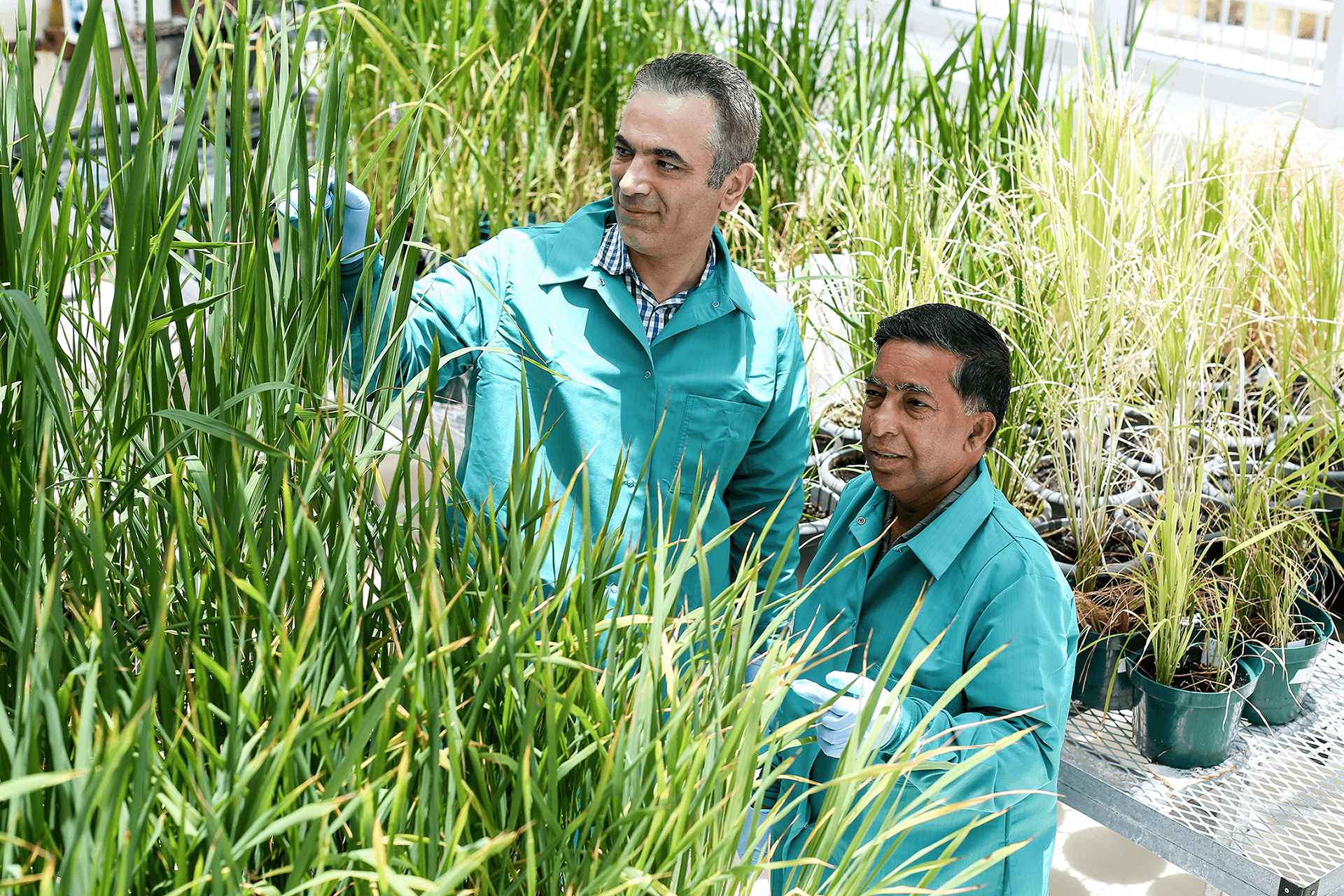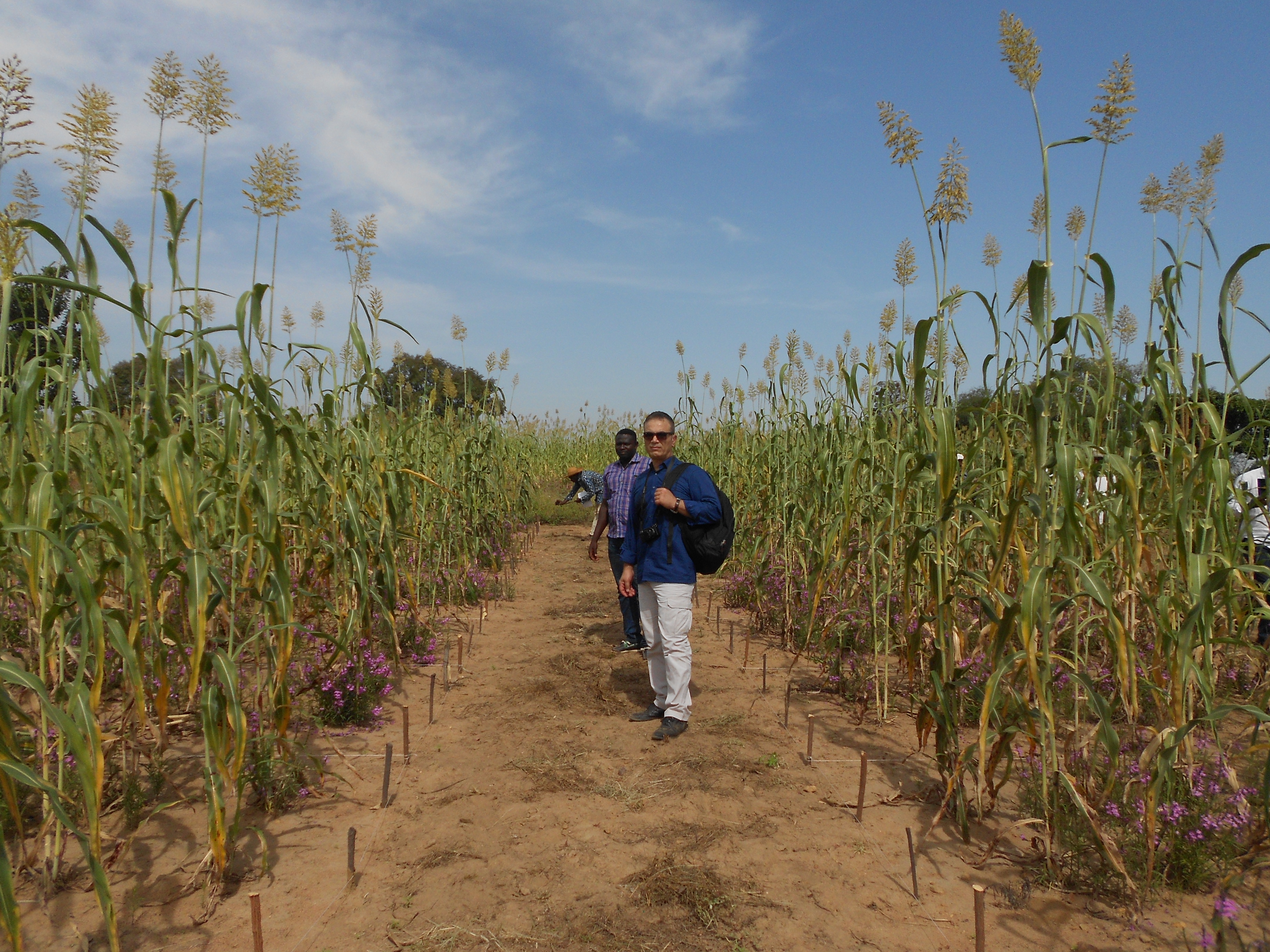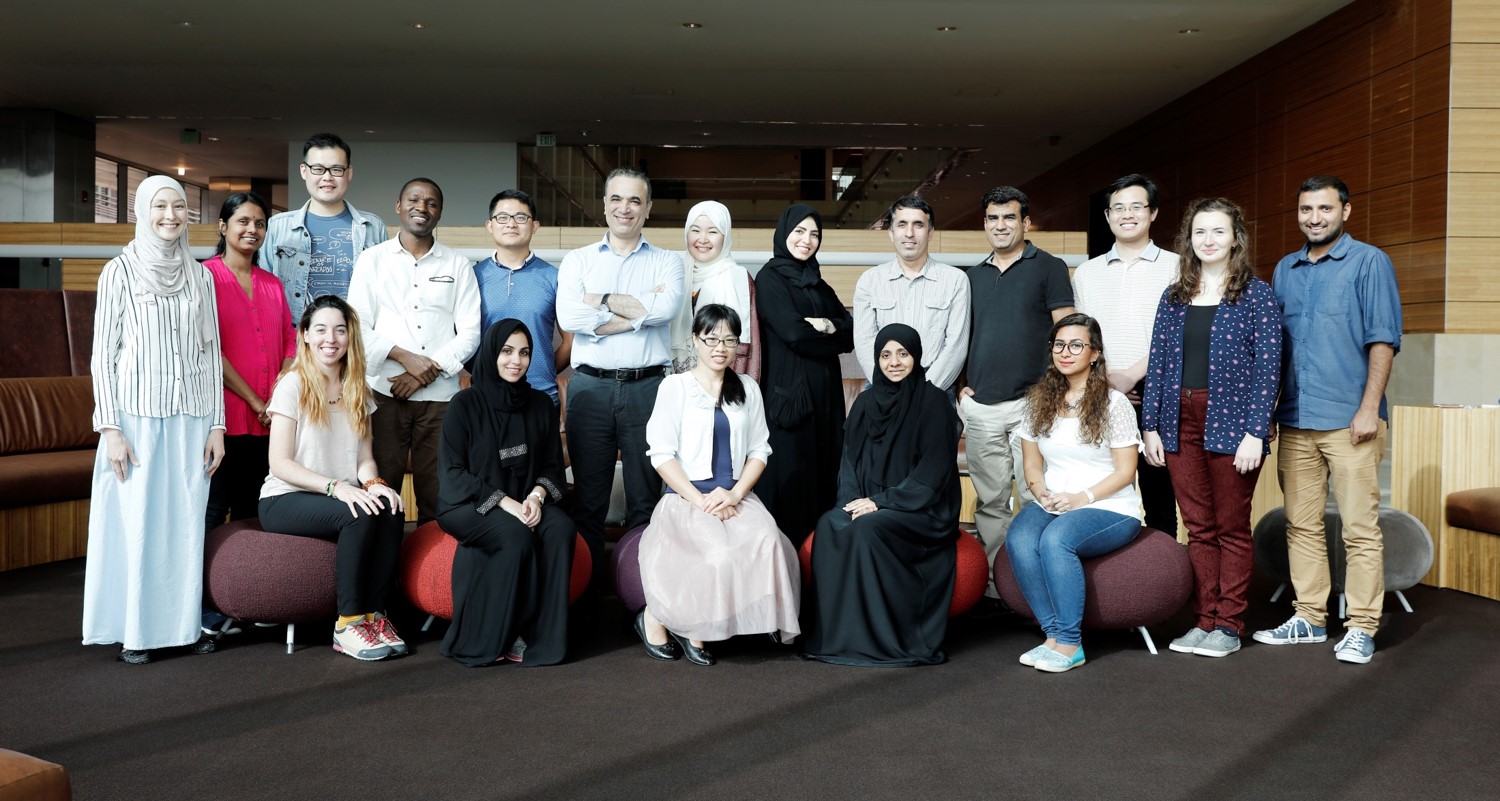KAUST Associate Professor Salim Al-Babili receives Bill & Melinda Gates Foundation grant

KAUST Associate Professor Salim Al-Babili (left) and his team were recently awarded an approximately $5 million grant by the Bill & Melinda Gates Foundation to combat parasitic purple witchweed. Photo by Anastasia Khrenova.
KAUST announced on December 27, 2018, that Salim Al-Babili, associate professor of plant science in the University's Biological and Environmental Science and Engineering division, and his team were awarded an approximately $5 million grant by the Bill & Melinda Gates Foundation to develop real-world strategies to combat the invasive spread of parasitic purple witchweed (Striga hermonthica).
Striga threatens food security across sub-Saharan Africa, and Al-Babili will concentrate on expanding methods to protect the production of pearl millet, an essential food crop in Africa and India, from Striga infestation.
Striga is a root parasitic plant that produces enormous numbers—up to 100,000 per single plant—of long-living seeds that can survive in the soil up to 20 years until they sense perfect growth conditions in the presence of a food crop. The plant's delicate purple blooms disguise its devastating threat to the global food chain.
The project led by Al-Babili provides hormone-based strategies for cleansing soils infested by Striga seeds by stimulating their germination in the absence of the host plant (pearl millet), novel chemistries that reduce Striga infestation and emergence, and identification of genetic factors responsible for pearl millet's susceptibility, which will accelerate the development of high-yield and resistant varieties that can be grown in arid regions.

KAUST Associate Professor Salim Al-Babili (center) is shown here evaluating field trials in Burkina Faso. Photo courtesy of Salim Al-Babili.
Striga infests various cereal species, causing massive yield losses amounting to billions of dollars. The problem is particularly severe in sub-Saharan Africa. However, as an invasive plant species, Striga has spread to other regions, including Saudi Arabia. Related species that infest other crops, such as tomatoes, beans and sunflower, are a severe threat to agriculture in the Middle East, Southern Europe and many regions in Asia. Al-Babili hopes that he and the young scientists in his group will reduce this threat through their single-minded pursuit of Striga mitigation strategies.
“Professor Al-Babili’s work builds on discoveries made in the basic sciences by translating them to the real-world setting of the farmer’s field. Such translation work is one of the key objectives of KAUST for the benefit of the world,” said Jean Fréchet, senior vice president for Research, Innovation, and Economic Development at KAUST.

Salim Al-Babili, KAUST associate professor of plant science, heads the BioActives Lab at KAUST. Photo courtesy of Salim Al-Babili.
"We are trying to improve food security by generating knowledge through state-of-the-art technologies in the laboratory and quickly developing this new knowledge into tools that can be employed by small-holder farmers in the field. We see ourselves as a bridge between discoveries in the lab and field applications," said Al-Babili.
Al-Babili's work on Striga mitigation strategies was initiated three years ago when he received a smaller grant of $1.5 million from the Gates Foundation. That grant allowed Al-Babili's team to make quick progress in collaboration with international partners from Japan, Burkina Faso and the Netherlands, and KAUST colleagues in the University's Computational Bioscience Research Center. The new grant will support the expanded project at several levels, from pursuing basic science discoveries on the genetics and hormone signaling of pearl millet in the lab to building networks of research collaborations around the world to moving new discoveries directly into farmers' fields.

